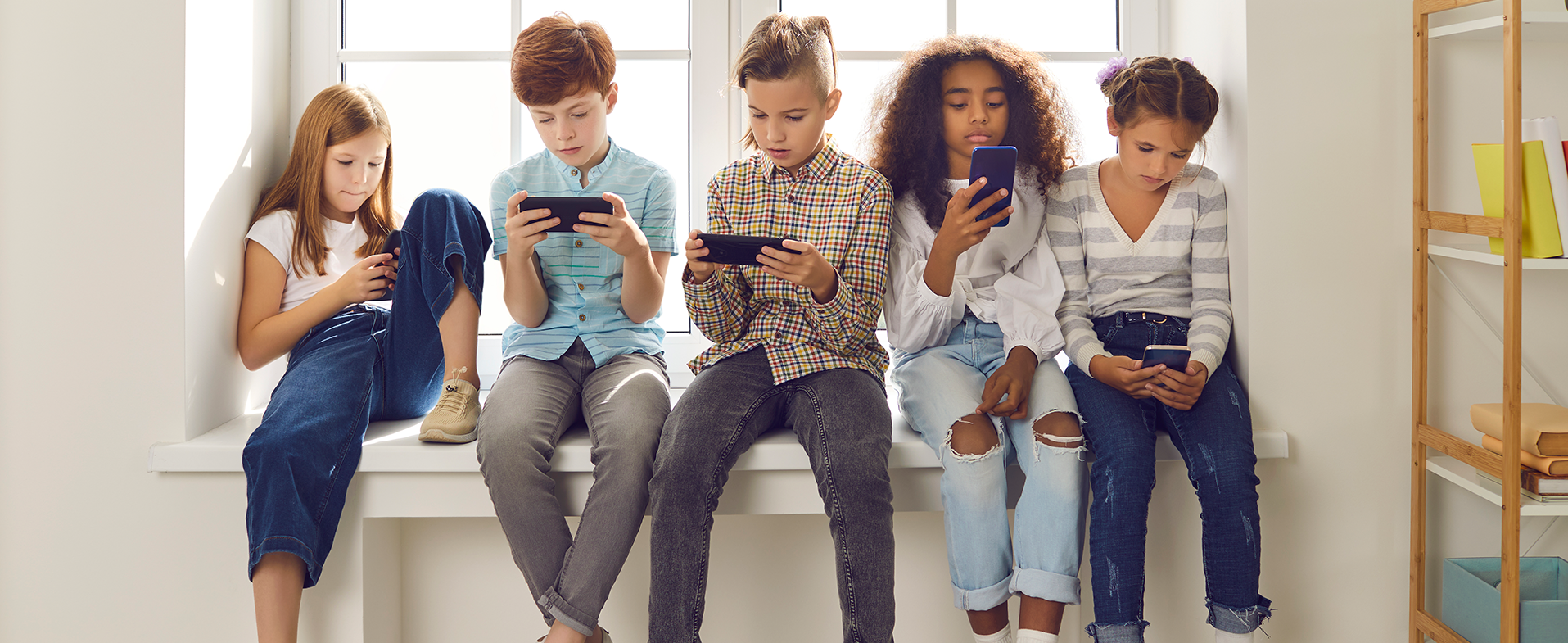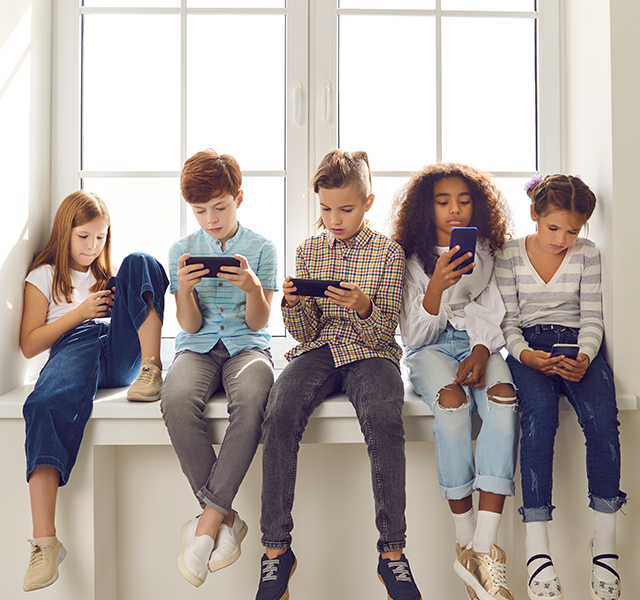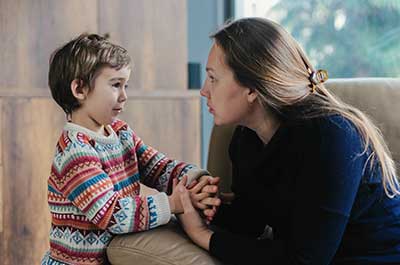Our devices go everywhere we go—and the sounds buzzing from their speakers have become the soundtrack of our lives. But that noise isn’t harmless—especially for kids who have a lifetime of listening ahead of them.
According to the U.S. Centers for Disease Control and Prevention, an estimated 12.5% of kids and teens—more than 5.2 million youth—have permanent damage to their hearing because of excessive exposure to noise. Even if kids don’t show signs of hearing loss now, repeated exposure to loud noise can set the stage for damage later in life.
“Noise-induced hearing loss is more common in adults than in kids. But children who are regularly exposed to loud sounds are at risk for developing hearing loss when they get older,” says Ilaaf Darrat, M.D., a pediatric ear, nose and throat specialist at Henry Ford Health.
Luckily, though, noise-induced hearing loss is largely preventable. Here’s what you can do to protect your family’s hearing.
What Is Noise-Induced Hearing Loss?
Over time, exposure to loud sounds damages tiny cells, called hair cells, in the inner ear. Unfortunately, those cells can’t grow back. When too many become damaged or destroyed, it causes permanent hearing problems.
Noise-induced hearing loss can occur after a one-time exposure to an intensely loud sound, such as an explosion. Or it can develop more gradually if you listen to too-loud sounds—like watching movies on a tablet with the sound cranked up or blasting music through earbuds—repeatedly or for long periods.
Too Loud? Understanding Safe Volume Levels
The volume of sound is measured in units known as decibels (dBA). Repeated or extended exposure to sounds over 85 dBA can lead to hearing loss over time. Unfortunately, kids regularly hear noises above that threshold—just take a look at the decibel levels of these common noises.
- Whisper: 30 dBA
- Conversation: 60-70 dBA
- Movie theaters: 74-104 dBA
- Motorcycles; Lawnmowers: 80-110 dBA
- Concerts; Music through headphones: 94-110 dBA
- Ambulance sirens: 110-129 dBA
- Fireworks: 140-160 dBA
The louder the sound, the less exposure it takes to damage the hair cells in the inner ear.
Signs of Hearing Loss in Kids
Since noise-induced hearing loss usually develops gradually, it’s not very common in young kids. But there are several other types of hearing loss that affect babies and children. Sometimes hearing loss is present from birth. Other times, it develops later or progressively gets worse over time.
Some signs of hearing loss in babies and kids include:
- Not reacting to loud noises
- Not turning to look at the source of a sound
- Delayed or hard-to-understand speech
- Seeming to hear some sounds but not others
- Trouble following conversations
- Turning up the volume very high
- Asking for things to be repeated often
If you’re concerned about your child’s ability to hear, ask your pediatrician to do a hearing test. And if your child already has some form of hearing loss, it’s especially important to protect them from loud sounds, Dr. Darrat explains. “If you already have damage to your ears, adding noise can make hearing loss worse and cause it to progress faster,” she says.

Pediatric ENT Care
Hearing Protection for Kids
Noise-induced hearing loss can’t be reversed. But it can often be prevented. Here’s what caregivers can do to keep their kids’ ears safe—during screen time, and all the time.
- Turn down the volume: It can be hard to estimate how loud a sound is. Luckily, many devices do the work for you. Phones and tablets often have volume controls that allow parents to set maximum volume limits. Check the settings to keep kids listening at a safe level.
- Headphones help: If your kid is listening through headphones or earbuds, choose a pair with safety features built in. Volume-limiting headphones have a set maximum volume so kids can’t turn the sound above a safe threshold. In noisy environments like planes, noise-canceling headphones allow your little one to hear their movie at a safe volume over the rumble of engine noise.
- Talk to teens: Volume controls might be a hard sell for teens who don’t like being told what to do. Letting them pick out stylish or colorful noise-canceling headphones might help—but you should still remind them that it’s important to enjoy their tunes at a safe volume. “I always tell my teen patients that if other people can hear what they’re listening to through their headphones, it’s definitely too loud,” Dr. Darrat says.
- Take breaks: The longer you listen to loud sounds, the greater the risk. And it’s not always obvious that the sounds coming from your child’s tablet have crept up past safe levels. Set screen time limits to give their ears and their brains a break. The American Academy of Pediatrics recommends taking a listening break from devices every hour, especially when using headphones. “You shouldn’t have anything playing in your ears 24/7,” Dr. Darrat says.
- Wear protection: Ear protection is especially important at noisy events like fireworks, concerts, motor sports events and shooting ranges. But even movie theaters and high school band concerts can exceed safe volumes, Dr. Darrat says. Luckily, there are lots of options when it comes to hearing protection, so choose what works best for your kids and your lifestyle. For toddlers, over-the-ear earmuff-style protection can keep them safe at loud events. Teens who go to concerts might appreciate high-fidelity earplugs that reduce the volume without muffling the sound quality of the music.
- Lead by example: Your ears are important at every age. Parents and caregivers can model healthy habits and protect their own hearing by using earplugs when you mow the lawn and turning down the volume on your favorite shows.
In our busy world, the everyday noise of screens and sounds in our environment can add up fast. “Taking steps to turn down the noise can help protect your children’s hearing into the future,” Dr. Darrat says.
Reviewed by Ilaaf Darrat, M.D., a pediatric ear, nose and throat specialist at Henry Ford Health.



